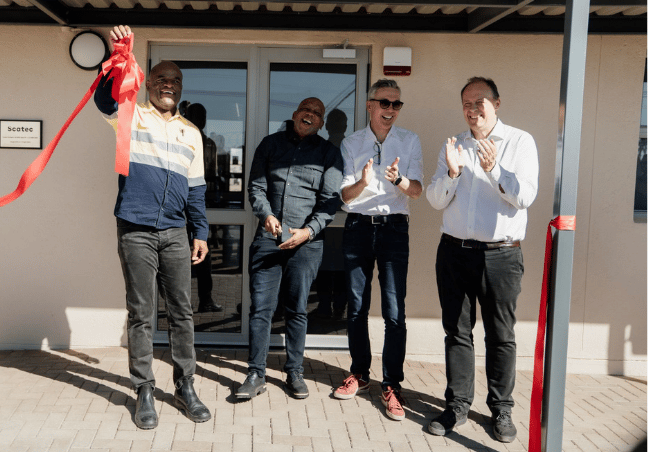- Renewables Rising
- Posts
- Renewables boom faces a grid reality check
Renewables boom faces a grid reality check
Dear subscriber,
For years, the rallying cry has been “build, baby, build”. Now, the pace of that growth is testing its limits. Several countries are pausing new solar and wind projects without storage as grids struggle to keep up. The question was never if this would happen, but when.
– Sammy Jamar, Editor
Uganda has issued a directive temporarily suspending the issuance of new licences for grid-connected solar and wind projects. The decision follows a recent 2.5% bump in peak demand, and technical assessments showing that the national grid’s current absorption capacity for variable renewable energy (VRE) has reached its practical limit. |
Renewables uptake across the continent is accelerating, with the Renewables Rising database showing at least 54 GW of projects under development, mainly from solar. Good thing, one in three of the new solar projects is now hybrid.
The issue of renewable intermittency is a growing concern for many countries, with some, like Kenya, putting measures in place to prioritise only renewables with battery storage as a safeguard for grid stability.
Our take: Expanding regional interconnections would help balance renewable integration with baseload power from hydropower and other sources… Read more (2 min)
Renewable energy is set to be one of the major beneficiaries of the new Green Exchange Window (GEW) on the Rwanda Stock Exchange later this month. This specialised platform will facilitate the trading of green, social and sustainability-linked financial products. The goal is to raise money for projects with environmental benefits, such as renewable energy and clean transport. |
Green bonds, blended finance and public-private partnerships are helping bridge funding gaps and drive investment in clean and sustainable development.
Rwanda’s GEW builds on earlier success with green financing. The African Development Bank and the Asian Infrastructure Investment Bank recently approved $299 m for a local “energy sector results-based financing program” (makes you worry about all the “non-results-based financing programs”).
Our take: The GEW could be where Africa stops waiting for climate finance and starts pricing it… Read more (2 min)
Ahead of Arab investors, European and Chinese investors continue to be the dominant actors in large-scale investments in Africa’s renewable energy sector. Together, they accounted for more than 75% of the $19.6 billion in new funding announced in October. One new entrant, Italy’s Todini Costruzioni Generali, joined the market with a $1.78 billion hydro deal. |
Gulf nations are expanding their investments. Saudi Arabia signed a deal to fund a $292 million solar-powered desalination plant in Senegal. The Arab Energy Fund also led a $26.3 million investment in Egyptian startup Tagaddod.
A shift by foreign governments from grants to loans is likely to reshape the sector. African governments must now focus on making their markets more investable to secure financing.
Our take: Governments must aim for viable, revenue-backed projects… Read more (2 min)


Scatec’s Kenhardt hybrid solar and battery project in South Africa named one of the top six global energy transition cases by SB COP30 (Source: Scatec ASA)
Events
🗓️ Participate in the Powerelec Kenya 2025 event (Nov 11)
🗓️ Attend the West African Clean Energy & Environment Trade Fair (Nov 11)
🗓️ Sign up for a webinar on tariff determination techniques (Nov 12)
🗓️ Take part in the how BC technology is redefining solar webinar (Nov 27)
Jobs
🦺 Join Sun King as an Agent Welfare Associate (Nigeria)
👩🏻💻 Become d.light’s Treasury Accountant (Kenya)
👨💻 Spearhead WastePlans’ credit operations (South Africa)
Various
⚙️ Zambia Tanzania transmission inter-connector nears realisation
🔌 Commercial operation achieved at Boston Hydro says Serengeti Energy
🤝 Envision Energy & ACWA Power establish framework for energy cooperation
Seen on LinkedIn
Tony Tiyou, Founder, CEO & Editor-in-Chief at Renewables in Africa (RiA), says, “A just transition isn’t a slogan—it’s a contract. And Africa must start writing our own.”


